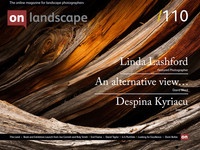Featured Photographer

Tim Parkin
Amateur Photographer who plays with big cameras and film when in between digital photographs.
Linda Lashford
Linda Lashford is a professional travel photographer and writer who has a beat that extends across Europe. Her photography arises out of encounters with landscape and people and is often characterised by memory, fragility and loss.
lindalashford.photoshelter.com
Abandoning a successful career and turning into a photographic nomad is something I'm sure quite a few of us fantasise about now and again. For most the thought remains fantasy but a very, very small number of people throw caution to the wind and step into the unknown. Linda Lashford did just this and left a job in medicine to travel to Spain and now travels around Europe as Inntravel's chief photographer. Linda found a place with an internet connection long enough to write this featured photographer section for us.
Can you tell me a little about your education, childhood passions, early exposure to photography and vocation?
I came to photography late (in 2006), after a long period as a doctor and clinical scientist. My education was entirely scientific, eventually becoming a paediatric oncologist with a research interest in new drug development, genetic therapy and clinical trials.
After a number of years as an Academic at the Christie Hospital in Manchester, I finally ended up as Director of Translational Research for Cancer Research UK (i.e. initiating funding programmes at the interface of basic science and clinical medicine). I had no exposure to photography until I decided to leave medicine and find a new direction. That new direction was a big leap, new country (Spain), new partner, new life! My partner bought me a camera to help me make the transition.
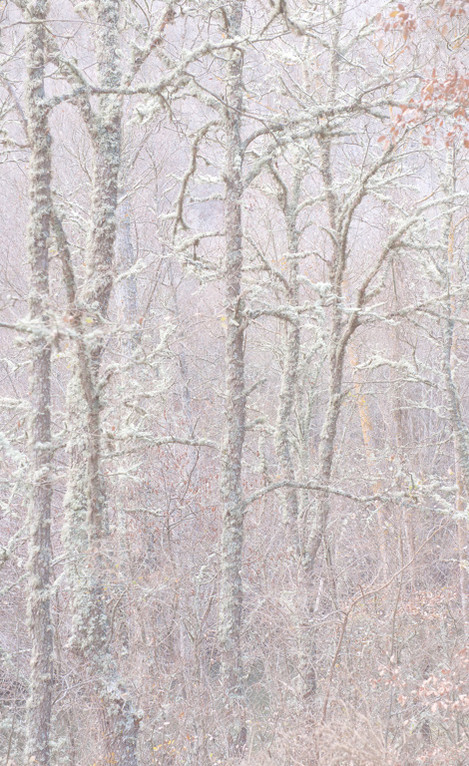
What are you most proud of in your photography?
I'm not sure that pride is an emotion I associate with my photography. There is always a sense of satisfaction when I pull together a series of photographs that is able to say something about how I feel about a place; to describe it in a original and nuanced way. But in general, I make progress through restless dissatisfaction.
In most photographers lives there are 'epiphanic’ moments where things become clear, or new directions are formed.
What were your two main moments and how did they change your photography?
There was one early moment when I attended a workshop in Yosemite and was taken to Horsetail fall to make 'that photograph'. The jostling chaos made me wonder what I was doing there. Why would I want to make the same photograph that everyone else was taking? I vowed to at least try to be creative, not to photograph the usual views or places, but to seek out something new.
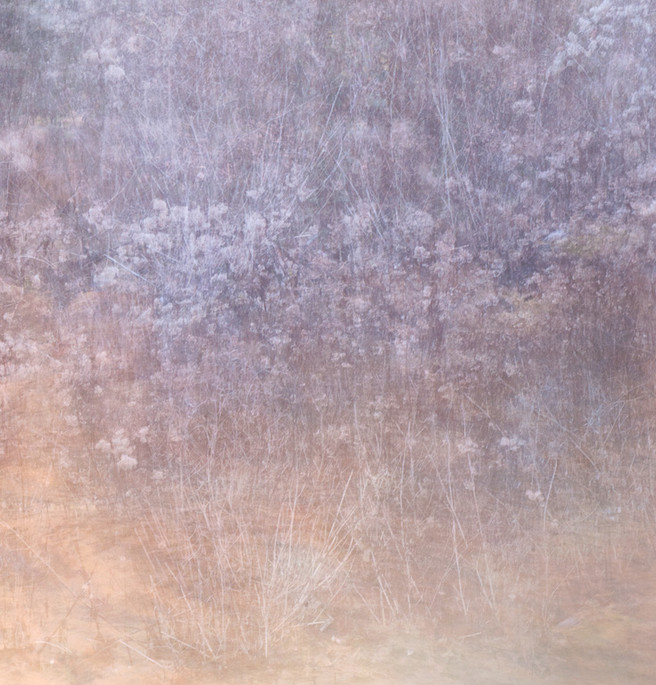
The second formative experience wasn't really a moment, but rather the end of a process: one of letting go. In September of last year, after I had my first exhibition, I felt that a line had been drawn under the past and that I could go forward without any more concerns; to photograph freely, without any consideration of form or genres - to cross whatever boundaries I felt like.
Tell me about why you love landscape photography? A little background on what your first passions were, what you studied and what job you ended up doing?
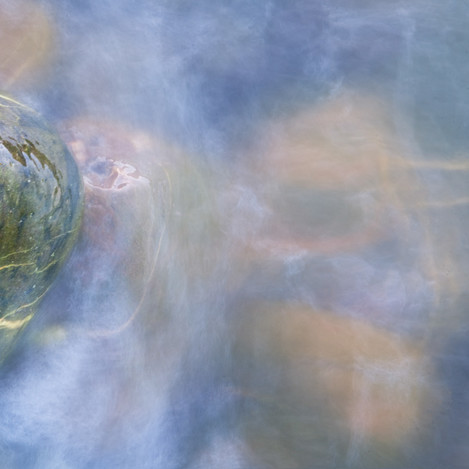
What is, for you, the appeal of landscape photography? What impact has it had on your life?
For me it has a duality. When it is the subject, then the appeal is to find a creative and non-literal, way to reveal it. When it forms the backdrop to a story, then the challenge is to find a way of conjuring up the emotion of a place – perhaps evoking memory, abandonment or decay. Photography has released me from a secure life into a creative and nomadic existence. It is often lonely and difficult, but I wouldn't change it!
Could you tell us a little about the cameras and lenses you typically take on a trip and how they affect your photography.
I do everything with my Nikon D3X and a 24-70mm lens. It is heavy but I have confidence in it. If I had the opportunity, I would like to try something smaller, lighter, quieter and even better in low light for my social documentary work.
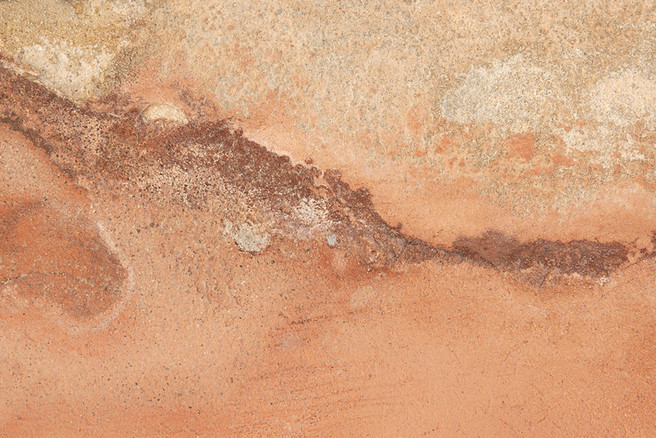
What sort of post processing do you undertake on your pictures? Give me an idea of your workflow.
All my images are processed, the degree depending on what I seek to achieve. I open in camera raw, adjust for highlights and shadows, and then move on to photoshop. I am a fan of Nik software, especially Silver Effex pro and all of my B&W is done through this plug in. Apart from that I don't really have any rules: I use whatever tool comes to hand, always finishing with a levels adjustment for final brightness and rarely sharpening, (having used Nik structure to get the sort of edge I'm looking for).
Do you get many of your pictures printed and, if at all, where/how do you get them printed?
I always do my own printing. I keep a printer in the UK at my mother's and one in Spain, so that whenever I come to rest, I can get going.
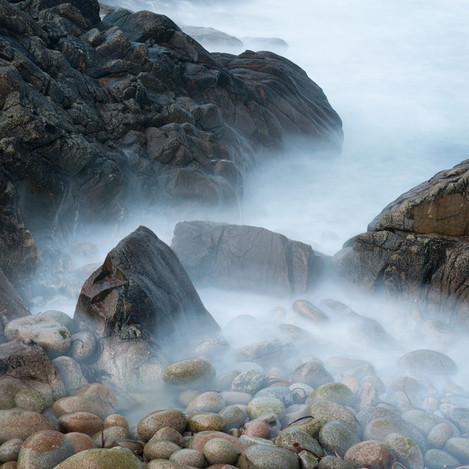
Who (photographers, artists or individuals) or what has most inspired you, or driven you forward in your development as a photographer? What books stimulated your interest in photography?
It all began with a mad workshop in Morocco, where I met fellow participants and accomplished photographers, Malie Rich Griffith and Anne Bayin. They got me going. Two years later, David Ward revealed something about the artistic process and struggle, Joe Cornish believed in me and Eddie Ephraums has driven me towards a book. Creativity is fed by being receptive to something glimpsed or experienced, a phrase, a poem, a single painting. And yes, Salgado, who shows that even the most brutal experiences can be revealed through exquisite beauty, Koudelka for his 'Gypsies' and Strand for his ability to set landscape in a story.
Can you choose 2-3 favourite photographs or series of photographs (if that’s easier and perhaps choose some from this series) from your own portfolio and tell us a little about them?
It's difficult to choose favourites. I suppose I am most drawn to landscape images that somehow transcend the subject. That become something other.
Intimations of landscape
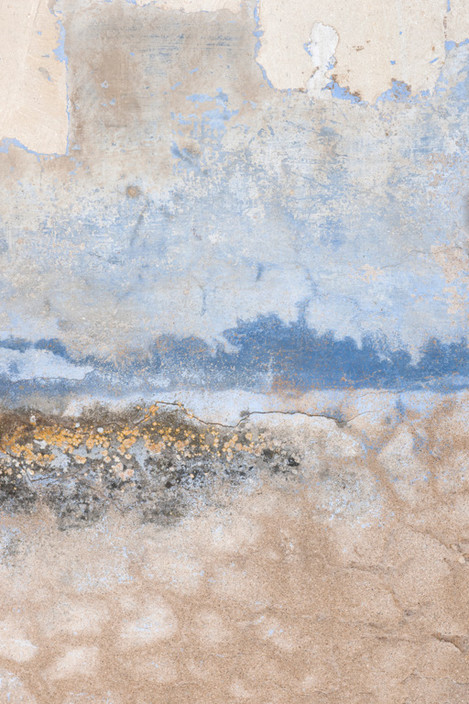
My series 'Intimations of landscape' takes a non literal view of the landscape genre and draws either directly from landscape or from abstract forms that are able to evoke a sense of landscape.
A river runs through it
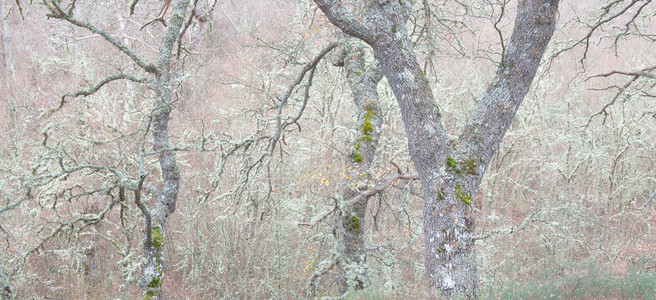
'A river runs through it', is much more literal evocation of landscape.
Ash Trees
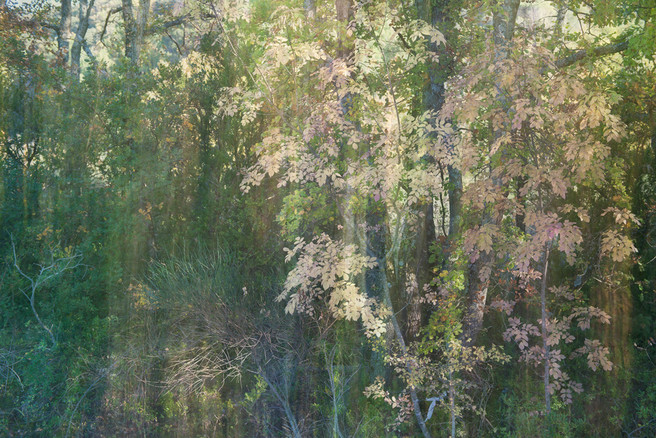
My third choice, and most recent image (so it still needs to stand the test of time), is inspired by a tiny painting glimpsed in a Welsh art gallery. The painting was primarily green, set in a gold frame and there was a sense of a lost building floating in a forest. For this image of ash trees, I have made 2 exposures, the background is captured by vertical panning over which I have superimposed the same scene as a still image. The result gives a sense of something fragile, impermanent, I think.
How easy – or difficult – do you find it to fit your photography around work and other commitments? When you travel for work, are you able to devote any time to either photography or researching new places?
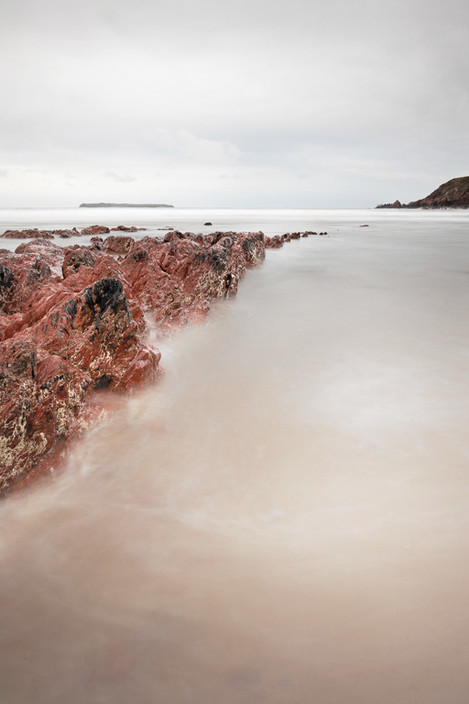
How do you like to approach your image making? Do you pre-plan and go out with something in mind, or do you prefer to let your photography flow from your explorations on foot?
Both. This year I have been keeping an e-photographic journal, jotting down my thoughts and impressions and collating groups of photographs as I go. Some series have arisen spontaneously during the year's exploration, but there are also nuggets of ideas that will need thoughtful development and planning to reach maturity.
Having said this, even the most spontaneous of photographs contain echoes of past experiences. For example, I can see that my Provencal 'Intimations of Landscape series' is part of a continuum that began with 'Trappings of Light' (an exploration of a disused cork factory on the Portuguese border), a visual journey through southern Italy until I ended up with a maturing idea in France.
If you had to take a break from all things photographic for a week, what would you end up doing?
Write.
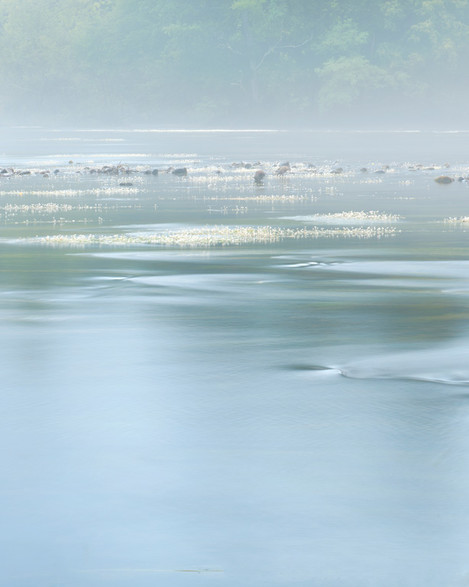
How important do you find it to be in the right frame of mind? Have you found ways to work around periods when your mind is busy with other things?
It's just important to get started. I stalk my subject and eventually it takes over. In the end the process of photographing stills the mind. I have summed up the photographic process for me in the words 'turbulence, quest, serenity, song'. It begins in tumult but ends in an outpouring of emotion.
Do you print many of your images and how do you choose to do this?
Printing is pleasure left for that brief period when I return home. I'm always working on an idea, so these are the photographs that get printed. These are my 'songs'.
What sorts of things do you think might challenge you in the future or do you have any photographs or styles that you want to investigate? Where do you see your photography going in terms of subject and style?
It's important to me to have several strands of work on the go, so that I can channel my photographic energy wherever I am. I have a long term commitment to a series of photo essays that describe life in Spain: these are an amalgamation of documentary landscape and people. 'Living with Loss' and 'People of the Sierra' are pretty much completed, and I am contemplating 'Barrio' and 'Casino' (a sort of old peoples club) as the next subjects.
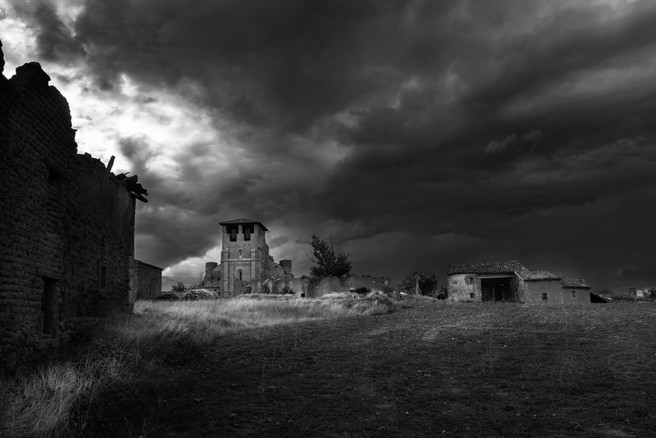
Social documentary Living with loss
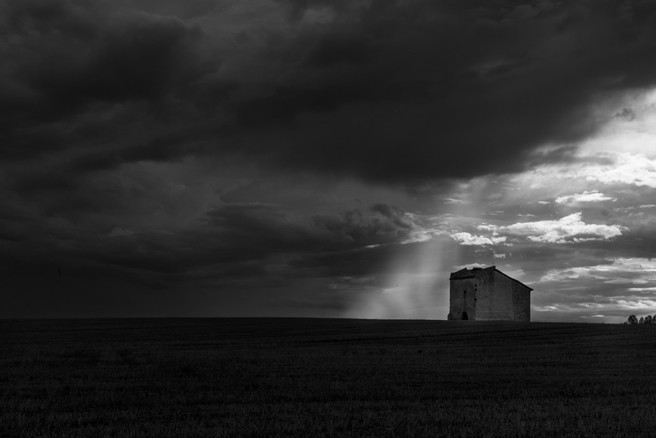
Social documentary Living with loss 2
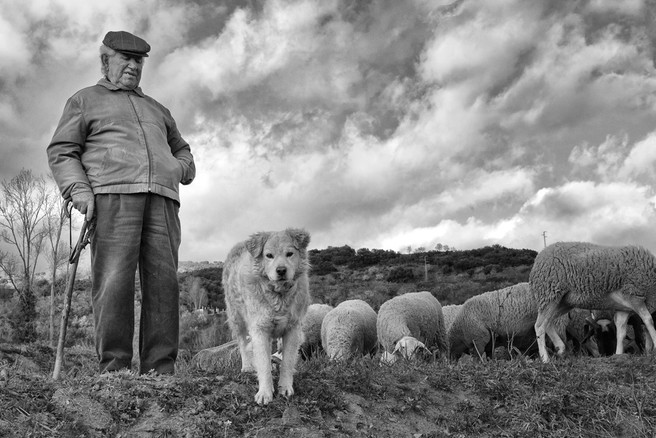
Landscape as backdrop Peoples of the sierras
More demanding as a subject is memory and the many ways of evoking it. Keeping a journal has taught me it is a central theme in my work and I shall be thinking more about what this means to me. I am working with poetry and prose and it may be that writing will become increasingly important in my work, so that photography may sometimes become an echo of my words (rather than the reverse, which tends to happen at the moment). But we will see! The most important thing is to stay open minded and receptive, and be prepared to fail.
You can see more of Linda’s images at http://www.lindalashford.photoshelter.com and at the Joe Cornish gallery, Northallerton. Her documentary series are available as free downloads for an iPad (through iBooks). Email her through her website for a link.
- Linda Lashford
- Linda Lashford

